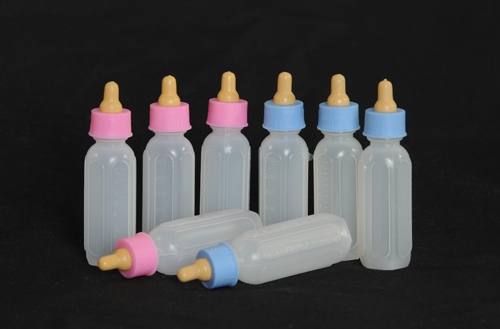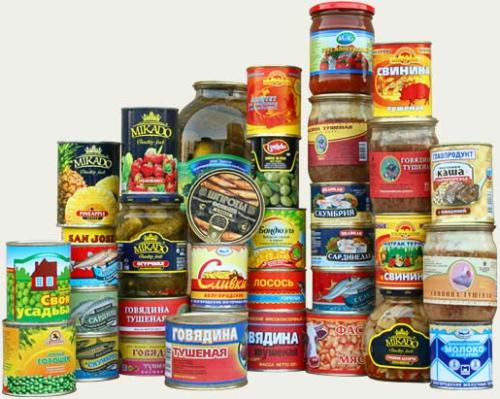-Defend your family against the toxins found in everyday food containers
1. Plastic Baby Bottles
BPA, or bisphenol-A, is a chemical used in a variety of plastic products (toys, infant bottles, water bottles, food containers, compact discs, impact-resistant safety equipment, the lining of tin food containers, and medical devices) and is now under heavy suspicion for the negative health effects it is having on the human population.

According to the National Institute of Environmental Health Sciences (NIEHS), has listed BPA as a concern (on varying levels) in a variety of diseases, including human development and reproduction. BPA gets into our bodies primarily through our diets, and so one of the first major concerns in the debate about BPA was the fact that it is used to line plastic baby bottles. Health Canada recently banned BPA from being used in baby bottles and sippy cups, and the US EPA is set to do the same soon as well.
2. Plastic Water Bottles
Scientists are also starting to connect BPA to heart disease. According to recent study on 60-year-old males in America, those men with the highest levels of BPA in their urine were also 45% more likely to have heart disease.

Though the ban on BPA in baby products in Canada has gone a long way to protect the young in our world, it is not protecting the adults. Studies like these are pushing legislation in that direction now as well. You can protect yourself by using water bottles that are made with either glass or stainless steel, neither of which are lined with BPA plastic layers.
3. Packaged food containers

Scientists are also starting to connect BPA with decreased brain function. “Our primate model indicates that BPA could negatively affect brain function in humans,” said study co-author Tibor Hajszan, M.D., associate research scientist in Yale Ob/Gyn.
Another way you can protect yourself from this chemical is to avoid purchasing foods packaged in #7 polycarbonate plastic containers (which are made with BPA).
4. Plastic Containers

A report from the National Toxicology Program suggests that high levels of exposure to BPA is also linked to hormonal illnesses in humans—everything from early onset of puberty in young women to breast cancer. Not only should you avoid purchasing food in rigid plastic containers with a #7 recycling symbol on the bottom, it is also advisable that you not heat food in them.
Transfer leftovers to ceramic or glass containers if you need to reheat them in the microwave oven, and avoid boiling water in these plastic containers as well. You should also consider replacing #7 plastics that are scratched and overly worn. Some also recommend that you not put #7 plastics in the dishwasher as the heat can react to loosen the BPA, releasing it on to your other serving dishes.
5. Canned Foods
Hormone disruptions and decreased brain functions aren’t the only risks to human health. New studies are also revealing the possibility that BPA could make us fat as well.

It appears that BPA may trigger fat-cell activity, increasing weight gain. Since BPA is also used to line tin cans, getting more potent the longer it sits around, you may also want to consider purchasing food in containers other than cans. You can buy many beans, vegetables, and fruits in frozen or dry form, making them safer than the other storage options.
6. PVC Toys, Accessories and More
One final tip to protect you and your family from BPA: stay away from products—toys, accessories, storage containers, and more—made from polyvinyl chloride (PVC) plastics (the flexible plastics). These are also made with phthalates like BPA and come with similar health risks.

Read more:













